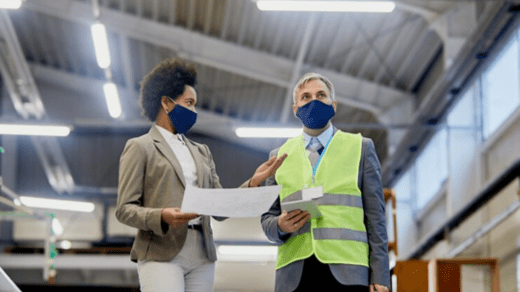
Air quality within industrial settings has a main role in keeping employees healthy, happy, and as effective as possible. Therefore, it is not to be treated any less than seriously. The bad air quality can provoke health issues, lower employee morale, and even force the company to deal with regulations.
Thus, the industrial sector must pay extra attention to the execution of plans enabling them to keep the indoor quality air at optimal level. Here in this article, we will find out the strategies and techniques on how to ensure a quality indoor atmosphere to achieve maximum effectiveness. To learn more, keep reading.
1. Regular Ventilation System Maintenance
Proper ventilation is necessary for maintaining clean indoor air to avoid health risks in the industrial sector. Periodic maintenance procedures should be carried out to ensure ventilation systems are performing at their best. In addition to that perform regular radon testing to ensure a safe atmosphere. With time filters get to accumulate dirt.
Moreover, fan malfunctioning or ductwork issues can negatively affect indoor air quality. The planned maintenance of air ducts to remove the air pollutants that circulate within the building can be done through the inspections and scheduled cleanings of the ventilation systems.
2. Effective Air Filtration Systems
A well-designed air filtration system that will filter out harmful chemicals and particles is an important feature for maintaining the good air inside. Such systems are developed to trap dust particles, particulate matter, and other junk from entering the air.
It also depends on the facility but the type of filtration system needed to clean and filter the air must be given due consideration as recommended by the manufacturer regularly.
3. Integration of Industrial Waste Management
Proper waste management in the factory has to correspond to indoor air quality. Illegal waste disposal at the facility may cause pollution in the air, soil, and water sources both within the area and the external surroundings.
By employing and promoting Wastewater consulting and waste management modules for instance recycling, storage, and proper disposal of hazardous materials, the facility can achieve both an environmental benefit from reduced pollution and internal cleanliness.
4. Control of Indoor Pollutant
Industrial processes are a common cause of pollution usually occurring in the form of solvents, various chemicals, and emissions. To deal with the emission issues and ensure air quality, strict control of these pollutants discharge is essential. This will require the implementation of well-run processes into enclosed systems, optimizing production methods, or installation of effective pollution control equipment like scrubbers or catalytic converters.
5. Employee Training and Awareness
Training the staff about how a sealed environment can influence health and how to be safe in these is equally vital. Through short courses that equip workers with knowledge about proper waste management, safe handling of chemicals, and the importance of reporting air quality-related issues immediately, air pollution levels can be significantly cut down. Employees are always essential in consistently creating a framework through which the environment can be understood and attended to.




